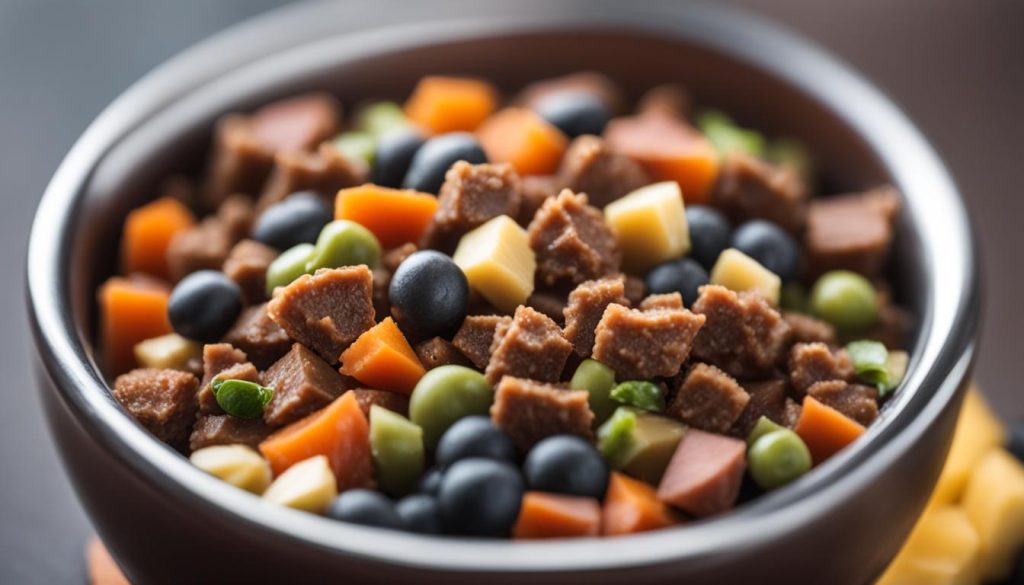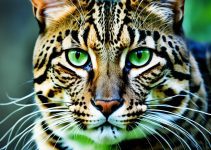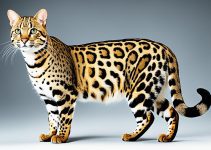Greetings, feline enthusiasts! As a cat parent, you may have wondered if your furry friend can indulge in almond milk. After all, it’s a popular plant-based alternative to cow’s milk. But before you pour a saucer of this creamy beverage for your kitty, let’s delve into the world of feline nutrition and explore whether almond milk is a suitable choice.
Can Cats Drink Almond Milk? Yes, but they shouldn’t.
- Almond milk is low in essential nutrients and can upset a cat’s stomach due to its artificial ingredients.
- While cats are lactose intolerant and cannot easily digest cow’s milk, almond milk is not a recommended alternative.
- Feeding almond milk to cats can lead to poor eating habits and potential health issues.
- Kittens should not be given almond milk as a replacement for their mother’s milk. Special milk replacer formulas designed for kittens should be used.
- Instead of almond milk, it is best to promote a meat-based diet rich in protein and moisture for your feline companion.
Cats and Lactose Intolerance: Why Almond Milk Isn’t Recommended
Cats are known for their love of milk, but did you know that they are actually lactose intolerant? Like many humans, cats lack the enzyme lactase needed to effectively digest lactose, the sugar found in cow’s milk. Feeding cats dairy products, including cow’s milk, can lead to digestive issues such as diarrhea, stomach upset, and even vomiting.
While almond milk is often considered a healthier alternative to cow’s milk, it is not recommended for cats. Although almond milk is lactose-free, it does not provide the necessary nutrients cats need for optimal health. Cats are obligate carnivores, which means they require a diet high in animal-based proteins. Almond milk, being plant-based, is low in protein and other essential nutrients that cats require for their overall well-being.
Moreover, almond milk can potentially cause gastrointestinal distress in cats. The artificial ingredients found in some almond milk products may upset a cat’s stomach and lead to digestive issues. Additionally, almond milk is highly caloric, and excessive consumption can lead to weight gain and obesity in cats. For these reasons, it is best to avoid feeding almond milk to cats and instead focus on providing them with a nutritionally balanced, meat-based diet that caters to their specific dietary needs.
Can Kittens Drink Almond Milk as a Milk Replacement?
Kittens should not be given almond milk as a replacement for their mother’s milk. While almond milk may seem like a tempting option, it is not nutritionally suitable for young kittens. Just like adult cats, kittens lack the necessary enzymes to digest lactose, the sugar found in milk. Feeding them almond milk can lead to digestive issues such as cramping, diarrhea, and discomfort.
It is essential to provide kittens with the proper nutrition they need for healthy growth and development. During the early stages of their life, kittens require specific nutrients found in their mother’s milk or a suitable milk replacer formula. These specially formulated products provide the necessary nutrients kittens need to thrive. They are designed to mimic the composition of cat milk, ensuring that kittens receive the optimal nutrition for their fragile systems.
Once kittens are ready to transition to solid food, it is important to gradually introduce a balanced diet specifically formulated for kittens. High-quality kitten-specific food provides the essential nutrients, including protein, to support their growth. It is always best to consult with a veterinarian who can guide you in choosing the right diet for your kitten’s individual needs.
Feeding a Balanced Diet to Kittens
Feeding kittens a balanced diet plays a crucial role in their overall health and well-being. A well-rounded diet should include high-quality kitten-specific food that contains the appropriate levels of protein, fat, carbohydrates, vitamins, and minerals. The diet should be formulated to meet the specific needs of growing kittens, ensuring that they receive the necessary nutrients for optimal development.
In addition to a high-quality kitten food, it is essential to provide fresh water at all times to keep kittens hydrated. Kittens should also be kept active through play and exercise to promote muscle development and prevent obesity. Regular veterinary check-ups will help monitor your kitten’s growth and ensure they are on track for a healthy life.
Remember, while it may be tempting to offer almond milk or other alternative milk products to kittens, it is best to stick to the recommended nutrition guidelines established by veterinarians. Providing the right nutrition from an early age sets the foundation for a healthy and happy adult cat.
Exploring Other Milk Alternatives for Cats
While almond milk is not recommended for cats due to its low nutrient content and potential for gastrointestinal distress, there are other milk alternatives that can be offered to cats as occasional treats. These cat-friendly milk alternatives provide variety and flavor without compromising a cat’s nutritional needs.
Coconut Milk for Cats
Coconut milk is a popular alternative to traditional dairy milk. It is naturally lactose-free and can be given to cats in small amounts as an occasional treat. However, it is important to note that coconut milk is high in fat and calories, so it should be given sparingly. Additionally, always opt for unsweetened coconut milk without any additives or artificial sweeteners.
Soy Milk for Cats
Soy milk is another alternative that is safe for cats to consume. It is made from soybeans and is a good source of protein. However, it is essential to choose soy milk that is specifically made for cats, as some brands may add ingredients that are harmful to felines. Soy milk should also be given in moderation to prevent any digestive upset.
Rice Milk for Cats
Rice milk is a non-dairy milk alternative that is derived from rice. It is typically made by blending cooked rice with water and straining out the solids. Rice milk is low in fat and cholesterol, making it a suitable option for cats with specific dietary restrictions. However, it is important to note that rice milk lacks the essential nutrients that cats require, so it should only be given as an occasional treat.
When offering any milk alternative to cats, it is crucial to remember that these should only be given in small amounts and should not replace a balanced and nutritionally complete cat food. Additionally, it is always best to consult with a veterinarian before introducing any new food or drink into a cat’s diet to ensure it aligns with their unique needs and dietary restrictions.
The Importance of a Healthy Feline Diet and Weight Management
When it comes to feline nutrition, providing cats with a healthy and balanced diet is essential for their overall well-being. Cats have specific dietary needs that should be met to ensure they receive the necessary nutrients for optimal health. While almond milk may be appealing as a dairy alternative, it is important to understand its limitations and the potential impact on a cat’s digestive system.
Cats are lactose intolerant, meaning they lack the necessary enzymes to digest lactose, the sugar found in milk. Feeding cats regular cow’s milk can lead to digestive issues such as diarrhea and stomach upset. While almond milk is lactose-free, it is not a suitable replacement for proper feline nutrition.
Health Benefits of Almond Milk for Cats
Despite being lactose-free, almond milk does not provide the essential nutrients that cats need. It is low in protein, which is a crucial component of a cat’s diet. Protein supports muscle growth, immune function, and overall health. Additionally, almond milk can be high in calories, which can contribute to weight gain and obesity in cats.
Feeding almond milk to cats, even as an occasional treat, can result in poor eating habits and potential health issues. It is important to prioritize a balanced and nutritionally complete diet for cats, focusing on animal-based proteins and avoiding foods that may disrupt their digestive system.
Managing a cat’s weight is crucial for their overall health and well-being. Obesity in cats can lead to various health problems, including diabetes, arthritis, and heart disease. Monitoring calorie intake and providing regular exercise are key factors in preventing feline obesity and promoting a healthy lifestyle for cats.
It is always best to consult with a veterinarian for personalized advice on your cat’s nutrition and dietary requirements. They can provide guidance on the most appropriate cat-friendly foods and treats to support your cat’s health and help them maintain an optimal weight.
What to Feed Your Cat Instead of Almond Milk
When it comes to feeding your cat, it’s important to provide a balanced and nutritious diet that meets their specific needs. Instead of offering almond milk, which lacks essential nutrients, there are plenty of cat-friendly foods, snacks, and treats to choose from.
One option is to focus on a meat-based diet that is rich in moisture and protein. Cats are obligate carnivores, which means they require animal-based protein for optimal health. Incorporating high-quality cat foods that contain meats like chicken, turkey, fish, and lean deli meats can provide the necessary nutrients for your feline friend.
Additionally, you can add some variety and extra nutrients to your cat’s diet by including cat-friendly fruits and vegetables. Consider offering small portions of peas, carrots, cucumbers, broccoli, apples, and bananas as healthy snacks. These can provide additional nutrients and help keep your cat’s diet interesting and diverse.
Choosing Cat-Friendly Treats
When it comes to treats, there are many cat-friendly options available. Look for treats specifically designed for cats, as they will be nutritionally balanced and appropriate for their dietary needs. Avoid feeding cats junk food or treats with limited nutritional value, as these can contribute to weight gain and poor health.
Remember, it’s always best to consult with your veterinarian for personalized advice on your cat’s nutrition and dietary requirements. They can provide guidance on portion sizes, specific dietary restrictions, and recommend the best cat food brands and treats for your furry friend.
The Benefits of Choosing a Premium Cat Food Brand
When it comes to providing the best nutrition for your beloved feline friend, opting for a premium cat food brand like Untamed can offer numerous advantages. These brands prioritize quality ingredients and meticulously formulate their products to meet the specific dietary needs of cats.
One of the key benefits of premium cat food is its high protein content. Cats are obligate carnivores, which means they require a diet primarily composed of animal-based proteins. Premium brands like Untamed prioritize the use of whole meat ingredients, ensuring that cats receive the necessary protein for optimal health and muscle development.
Another advantage of choosing a premium cat food brand is that many of them are vet-formulated. This means that they are designed with the expertise and guidance of veterinarians who understand the unique nutritional requirements of cats. Vet-formulated cat foods take into account factors such as age, breed, and specific health conditions to provide a highly nutritional and allergen-free option for your furry companion.
The Importance of Ethically Produced Cat Food
In addition to nutritionally superior formulations, premium cat food brands also prioritize ethical production practices. Ethically produced cat food brands, like Untamed, are committed to using sustainable and environmentally friendly methods in their manufacturing processes. This ensures that not only are the nutritional needs of cats met, but also that the production of their food has a minimal impact on the environment.
By choosing a premium cat food brand, you can have peace of mind knowing that you are providing your cat with a nutritionally balanced and ethically produced diet. Remember, always consult with a veterinarian for personalized advice on your cat’s nutrition and dietary requirements.

Conclusion
After exploring the topic of cats and almond milk, it is clear that almond milk is not a suitable option for our feline friends. Cats are lactose intolerant and lack the enzyme needed to digest lactose, the sugar found in cow’s milk. While almond milk is lactose-free, it lacks the essential nutrients that cats require for optimal health.
Feeding cats almond milk, even as an occasional treat, can lead to poor eating habits and potential digestive issues. Cats need a balanced and nutritionally complete diet that is high in animal-based proteins. It is important to provide them with cat-friendly milk alternatives and adhere to a healthy feline diet that meets their unique biological needs.
To prioritize your cat’s health, it is best to consult with a veterinarian for personalized advice on their nutrition and dietary requirements. They can recommend high-quality cat foods and treats that provide the necessary nutrients and support your cat’s overall well-being. Remember, a healthy feline diet is essential for a happy and thriving cat!
FAQ
Can cats drink almond milk?
No, almond milk is not recommended for cats due to its low nutrient content and potential for digestive issues.
Why isn’t almond milk recommended for cats?
Cats are lactose intolerant and require a diet high in animal-based proteins, which almond milk does not provide.
Can kittens drink almond milk as a milk replacement?
No, almond milk is not nutritionally suitable for kittens and can cause digestive issues. Special milk replacer formulas designed for kittens should be used instead.
Are there other milk alternatives for cats?
Yes, small amounts of soy milk, coconut milk, and goat milk can be given to cats. However, these alternatives should still be limited as they may not provide essential nutrients.
What should cats be fed instead of almond milk?
Cats should be fed a variety of high-quality cat foods that include meat, such as chicken, turkey, fish, and lean deli meats. Including vegetables and fruits can provide additional nutrients and variety to their diet.
Are there any benefits to choosing a premium cat food brand?
Yes, premium cat food brands like Untamed prioritize the use of whole meat ingredients and provide a nutritionally balanced option for cats.
What is the importance of a healthy feline diet?
A healthy diet is crucial for cats to maintain optimal health and prevent obesity-related health issues.






